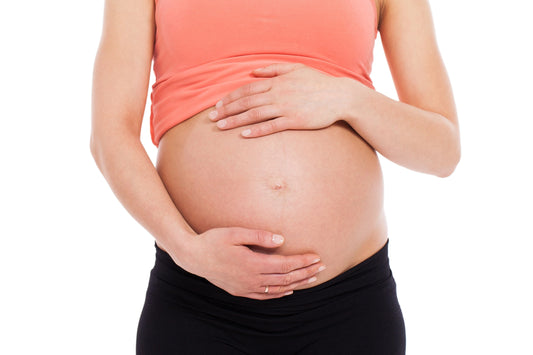What’s the most common early pregnancy symptom? Nausea and morning sickness!
For some it starts straight away, for others a few weeks later... some lucky ones, on the other hand, don’t suffer from it at all!
It’s not easy being pregnant and nauseous, and having to get on with your daily life, commitments and work... So you may wonder: how long does nausea last during pregnancy? And what can be done to ease it?
How long does morning sickness last for?
It usually starts between the fifth and eighth week and disappears by the eighteenth week of pregnancy. There are those women who are luckier and don’t experience it at all, and other women who suffer from pregnancy sickness for much longer, even up to the birth. These are, however, much rarer cases.
Not every expectant woman who suffers from nausea, experiences vomiting during pregnancy, but that does not mean feeling nauseous in pregnancy is not debilitating and unpleasant in itself!
What causes nausea during pregnancy?
The causes of nausea in pregnancy are hormonal: during the first few months there is a sharp rise in the levels of oestrogen, progesterone and beta HCG, which then decrease until they stabilise from the fourth month of gestation.
However, stress and excessive fatigue seem to impact on nausea and vomiting in pregnancy. They certainly do not help to ease it.
It’s been found that women whose mums and sisters suffered from morning sickness in pregnancy tend to be more prone to it. There is, therefore, a certain genetic link.
In addition, women with a high sensitivity to odours, or who suffer from travel sickness, seasickness or migraines have a greater risk of experiencing nausea and vomiting during pregnancy.
Nausea in pregnancy: a boy or a girl?
Popular belief is that expectants mums who suffer from severe morning sickness are carrying a female foetus. While many mums may confirm this has proven true, there is no scientific evidence supporting the theory.
What is hyperemesis gravidarum?
When does morning sickness for pregnant women become hyperemesis gravidarum?
This condition is very rare and very intense – only 1% of pregnant women suffer from it.
Nausea and vomiting are persistent for most of the day, the pregnant woman experiences significant weight loss, an inability to carry out daily activities, severe dehydration... In severe cases of extreme vomiting pregnancy, this condition leads to hospitalisation.
The causes of hyperemesis gravidarum pregnancy have not yet been fully clarified, but several factors seem to be involved:
- increased oestrogen and prolactin presence in the blood
- excessive production of hormone chorionic gonadotropin (HCG)
- previous presence of gastrointestinal disorders (worsened by hormonal changes during pregnancy)
- a genetic disposition
In the past, the origin was reported to be psychosomatic disorders, but these theories have never been scientifically confirmed.
How to treat nausea in pregnancy
What are the morning sickness remedies?
The truth is that there are no magic cures for pregnancy nausea, but there are many measures you can take to help keep it under control:
- Eat small meals, so as not to overburden your digestive system. You may feel hungrier and want to eat more at mealtimes, only to find it makes you feel more nauseous, especially if you have eaten too much!
- Eat frequent snacks, especially dry plain food, such as crackers. An empty feeling in your stomach can increase nausea
- Sip liquids little and often. When suffering from intense morning sickness, even drinking water may cause vomiting, yet hydration is essential.
- Avoid strong-tasting or harder-to-tolerate foods, such as coffee, foods high in fat, acidic or very sweet foods
- Mint or fennel herbal infusion teas can offer pregnancy sickness relief, as does eating foods or drinks containing ginger
- Go for a walk in the fresh air
- Get plenty of rest, listen to your body! Excessive stress and tiredness have been shown to increase nausea and vomiting in pregnancy.
Anti-sickness medicine
If your are suffereing from extreme nausea and vomiting in pregnancy and it does not improve after trying lifestyle changes, your Doctor may recommend a short-term course of an anti-sickness medicine, called an antiemetic, that's safe to use in pregnancy. This medicine can only be prescribed by a Doctor. See your GP if you'd like to talk about getting anti sickness tablets for pregnancy. For more information visit nhs nausea pregnancy








